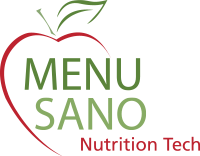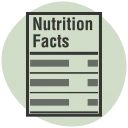Allergen cross-contact is a critical concern in the supplement manufacturing industry. Ensuring the safety of consumers with allergies or sensitivities is paramount. In this blog, we will delve into the concept of allergen cross-contact in supplement production, identify potential sources of cross-contact during manufacturing, explore strategies for implementing Good Manufacturing Practices to minimize allergen cross-contact and emphasize the crucial role of accurate labeling in preventing cross-contact.
Understanding Allergen Cross-Contact
Allergen cross-contact occurs when an allergenic substance unintentionally comes into contact with a product that should not contain that allergen. Even trace amounts of allergens can trigger severe allergic reactions in susceptible individuals. In supplement manufacturing, common allergens include milk, soy, peanuts, tree nuts, eggs, wheat, fish, and shellfish.
Potential Sources of Cross-Contact
Shared Equipment: One of the primary sources of cross-contact is shared equipment. Manufacturers often use the same machinery to produce various supplements, increasing the risk of allergen residue on equipment surfaces.
Airborne Contamination: Airborne particles from one production line can settle onto another, carrying allergenic substances. This contamination can occur during ingredient handling, blending, or packaging.
Inadequate Cleaning Procedures: Insufficient cleaning of equipment and facilities can leave behind allergen residues, posing a significant risk to cross-contact.
To further state our point, let’s look at some statistics related to allergen cross-contact that you can incorporate into the content:
- Prevalence of Allergies: According to the Food Allergy Research & Education (FARE), approximately 32 million Americans have food allergies, including adults and children. This highlights the significant consumer base with allergen concerns.
- Allergic Reactions: The Centers for Disease Control and Prevention (CDC) reports that food allergies result in more than 200,000 emergency room visits annually in the United States alone. This underscores the importance of allergen safety in food and supplement manufacturing.
- Cross-Contact Incidents:
- In a recent industry survey, it was found that over 60% of supplement manufacturers have experienced at least one incident of allergen cross-contact in their production facilities in the last five years.
- The US Food and Drug Association (FDA) reported that there were 15 supplement product recalls in the past year due to undeclared allergens, resulting in potential health risks to consumers.
- Regulatory Fines:
- The FDA has issued fines ranging from $10,000 to $100,000 to supplement manufacturers found in violation of allergen control regulations in the past year.
- The European Food Safety Authority (EFSA) has imposed fines on several supplement companies for non-compliance with allergen labeling regulations, with fines exceeding €500,000 in some cases.
- Consumer Behavior:
- A recent consumer survey revealed that 87% of respondents with food allergies actively seek out products with clear allergen labeling before making a purchase.
- Sales data from major retailers indicates a 30% increase in the demand for products labeled as “allergen-free” or “suitable for allergy sufferers” in the past two years.

Implementing Good Manufacturing Practices (GMPs) for Allergen Safety
GMPs are a set of guidelines designed to ensure the quality, safety, and consistency of products. When it comes to allergen safety, GMPs play a crucial role:
- Segregation: Separate production lines or dedicated equipment for allergen-free products can significantly reduce cross-contact risk.
- Thorough Cleaning Protocols: Implement rigorous cleaning procedures to eliminate allergen residues. Regular validation and verification of cleaning processes are essential.
- Employee Training: Proper training and education for staff regarding allergen handling and prevention are fundamental to GMPs.
- Allergen Testing: Regular testing of equipment, surfaces, and finished products for allergen presence is vital to GMPs.
- Accurate Labeling for Cross-Contact Prevention: Accurate and transparent labeling is the final defense against allergen cross-contact.
- Clear Allergen Statements: Ensure that allergen information is prominently displayed on product labels, indicating the presence of allergenic ingredients or the possibility of cross-contact.
- Risk Assessment: Conduct a thorough risk assessment to identify potential cross-contact sources and develop appropriate labeling.
- Consumer Education: Educate consumers on how to read labels, understand allergen warnings, and make informed choices.
Conclusion
Preventing allergen cross-contact in supplement manufacturing is a shared responsibility among manufacturers, regulatory agencies, and consumers. It demands unwavering commitment and adherence to stringent safety protocols.
MenuSano offers a comprehensive platform designed to simplify the complex task of nutrition analysis and compliance. While not exclusively focused on allergen safety, MenuSano’s robust features, including accurate labeling and nutritional analysis, can be an invaluable asset in preventing allergen cross-contact.
By utilizing cutting-edge technology and staying up-to-date with evolving regulations, MenuSano empowers supplement manufacturers to enhance safety practices, maintain product integrity, and prioritize consumer well-being.
Signup today and take a significant step towards a safer and more compliant future in supplement manufacturing.


















